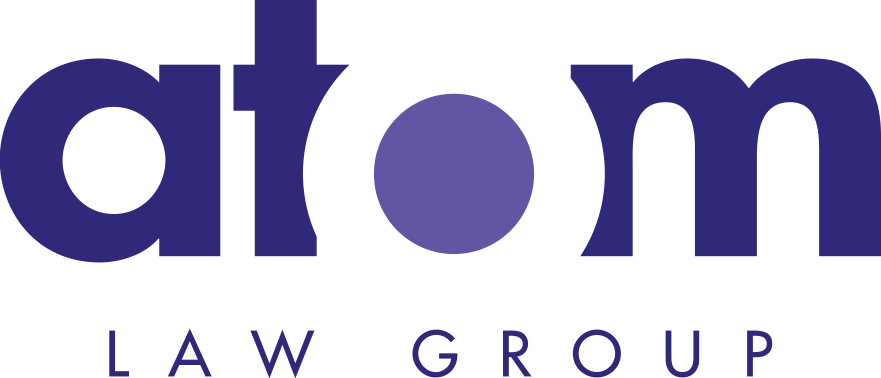ENTITY SELECTION IN FORMING YOUR COMPANY
There are two main entity types (although some industries may require other types): Corporations and Limited Liability Companies. They both provide limitations of liability for owners and managers but have different tax ramifications. Deciding which type of entity will work for your small to medium-sized business can be tricky. That is where Atom Law Group is the firm you can count on.
When Deciding Whether to Form a Corporation or an LLC, There Are Several Factors to Consider, Including:
- Liability protection: Both corporations and LLCs provide their owners with personal liability protection, meaning that their personal assets are generally protected from business debts and liabilities. However, corporations have stricter formalities, and LLCs offer more flexibility.
- Taxation: Both corporations and LLCs can be taxed as separate entities, but the way they are taxed can be different. Corporations are subject to double taxation, meaning that the corporation pays taxes on its income, and then the shareholders pay taxes on any dividends they receive. LLCs, on the other hand, can choose to be taxed as a pass-through entity, meaning that the business income is passed through to the owners and taxed at their individual tax rates. However, corporations' double taxation can be avoided through careful planning. And LLCs may have tax disadvantages for foreign owners.
- Management structure: Corporations have a more formal management structure, with a board of directors and shareholders, while LLCs have a more flexible management structure, with members instead of shareholders.
- Formalities: Corporations have more formalities, such as holding annual meetings and keeping detailed records, while LLCs have fewer formalities and are more flexible.
- Legal compliance: Both corporations and LLCs are required to comply with state and federal laws, but the specific requirements may differ between the two.
- Cost: Forming and maintaining a corporation may be more expensive than an LLC due to the additional formalities and requirements.
EIN
An Employer Identification Number (EIN) is a unique nine-digit number assigned by the Internal Revenue Service (IRS) to identify a business for tax purposes. It is similar to a Social Security number for an individual, but it is used to identify a business entity.
An EIN is used for a variety of purposes, including:
- Filing federal tax returns: An EIN is required for businesses to file federal income tax returns, employment tax returns, and certain excise tax returns.
- Opening a bank account: Many banks require an EIN to open a business bank account.
- Hiring employees: An EIN is required to report and pay employment taxes on wages paid to employees.
- Obtaining business licenses: Some states and localities require an EIN to obtain certain business licenses.
- Applying for business loans: Some lenders may require an EIN as part of the loan application process.
- Establishing a pension or profit-sharing plan: An EIN is required to establish certain types of employee benefit plans.
EINs are free to obtain and can be obtained through the IRS website, by mail, by fax, or by phone. It's important to note that once an EIN is obtained, it should be kept confidential, as it is used to identify the business for tax purposes and should not be shared with third parties unless required by law.
ITIN
An Individual Taxpayer Identification Number (ITIN) is a unique nine-digit number assigned by the Internal Revenue Service (IRS) to individuals who are required to have a taxpayer identification number but do not have and are not eligible to obtain a Social Security number (SSN). ITINs are issued regardless of immigration status.
A foreign owner of a U.S. company may need an ITIN if they are required to file a U.S. tax return, such as if they receive income from the U.S. company or they are a shareholder and the company pays dividends to them. Additionally, an ITIN is required if an individual wants to claim a refund of taxes paid or certain tax credits or if they are required to furnish a number to the payer of certain types of income.
- ITINs can be obtained by completing Form W-7, Application for IRS Individual Taxpayer Identification Number, along with the required documentation, such as a valid passport, and submitting it to the IRS. It's important to note that ITINs are for federal tax purposes only and do not authorize an individual to work in the U.S., nor do they serve any purpose other than federal tax reporting. It's recommended to seek legal and accounting advice when determining if an ITIN is required and when applying for one.
